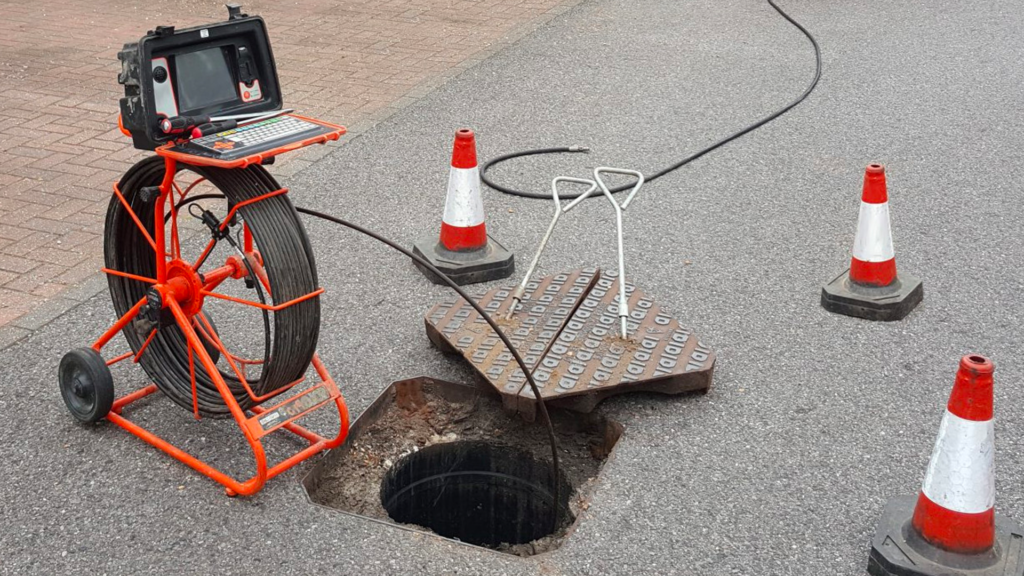Reclaim Waste - The Facts
Reclaim Waste - The Facts
Blog Article
Reclaim Waste Fundamentals Explained
Table of Contents8 Easy Facts About Reclaim Waste ShownThe Single Strategy To Use For Reclaim WasteRumored Buzz on Reclaim WasteThe Of Reclaim WasteThe Reclaim Waste Statements
Check out the types, events, and forms of liquid waste. Domestic sewage waste refers to the waste and products from a property sewage-disposal tank. This sort of waste is produced by human beings in houses, colleges, and other buildings. This only consists of sewage-disposal tanks that have a drainpipe area. The proper monitoring and disposal of domestic sewage waste need fluid waste to be transferred to a sewage treatment plant where the appropriate approaches and tools are related to purify and dispose of waste.
Commercial waste typically consists of possible threats, such as combustible products or a blend of liquid and strong waste items, and requires an extra advanced and thorough disposal procedure. The disposal of industrial waste commonly includes the purification of waste prior to transport to guarantee secure and appropriate disposal. Hazardous waste is created from by-products and overflow of commercial processes and manufacturing.
This type of waste can not utilize the very same sewer management transportation or processes as septic or industrial fluids. The hazardous waste administration procedure requires the inspection and screening of liquid waste prior to it goes through the disposal procedure (liquid waste removal). Runoff waste is the liquid waste that comes from overflow and excess stormwater in extremely booming areas or cities
Drainage waste can create contamination and flooding if not handled correctly. Making certain proper waste monitoring can stop catastrophes and reduce environmental injury.
Some Known Details About Reclaim Waste
Get in touch with PROS Providers today to discover about our waste administration and disposal services and the appropriate means to take care of the liquid waste you create.
(https://telegra.ph/Expert-Liquid-Waste-Disposal-and-Removal-Services-in-Melbourne-11-12)This supposed 'wastewater' is not only a crucial resource however, after treatment, will certainly be released to our land, waterways or the ocean. Made use of water from commodes, showers, bathrooms, cooking area sinks, washings and commercial procedures is known as wastewater.

water used to cool down machinery or clean plant and equipment). Stormwater, a kind of wastewater, is drainage that moves from farming and city locations see this website such as roofings, parks, yards, roadways, courses and seamless gutters into stormwater drains, after rainfall. Stormwater flows unattended directly to regional creeks or rivers, at some point reaching the ocean.
The Best Guide To Reclaim Waste
In Queensland, many wastewater is dealt with at sewer therapy plants. Wastewater is moved from residential or industrial sites through a system of sewers and pump terminals, recognized as sewerage reticulation, to a sewage therapy plant. City governments build, maintain and operate most sewage therapy plants. Operators are licensed under the Environmental Protection Act 1994 to discharge cured wastewater at an acceptable environmental standard right into rivers.
The Division of Natural Resources encourages city governments regarding managing, operating and preserving sewerage systems and therapy plants. In unsewered locations, neighborhood federal governments may require householders to mount specific or family sewer therapy systems to deal with residential wastewater from commodes, kitchen areas, shower rooms and washings. The Division of Natural Resources authorizes using home systems when they are proven to be reliable.
The majority of stormwater receives no therapy. In some brand-new class, therapy of some stormwater to eliminate clutter, sand and gravel has started using gross pollutant traps. Wastewater treatment occurs in four phases: Gets rid of solid matter. Bigger solids, such as plastics and various other items mistakenly discharged to sewers, are gotten rid of when wastewater is travelled through screens.
Utilizes tiny living microorganisms understands as micro-organisms to break down and get rid of remaining liquified wastes and great bits. Micro-organisms and wastes are integrated in the sludge.
Reclaim Waste Can Be Fun For Everyone
Nutrient removal is not offered at all sewer therapy plants due to the fact that it calls for pricey specialist devices. Clear fluid effluent generated after therapy might still contain disease-causing micro-organisms - liquid waste disposal melbourne.

This typically implies wastewater has to be treated or contaminants gotten rid of prior to it can be discharged to waterways. The majority of wastewater moves right into the sewerage system. Under the Act, city governments provide approvals and licences for environmentally appropriate tasks (Periods) including wastewater releases that could have a regional effect. The department carries out approvals and licences to Ages including wastewater launches that could have a regional or statewide influence.
Reclaim Waste Things To Know Before You Get This
Otherwise, examples are considered laboratory analysis. Often lots of examinations are required to develop the degrees of each of the various pollutants such as oils, heavy steels and pesticides in water. Monitoring supplies valid information regarding water top quality and can verify that licence conditions are being satisfied. The details obtained with tracking supplies the basis for making water top quality decisions.
Report this page